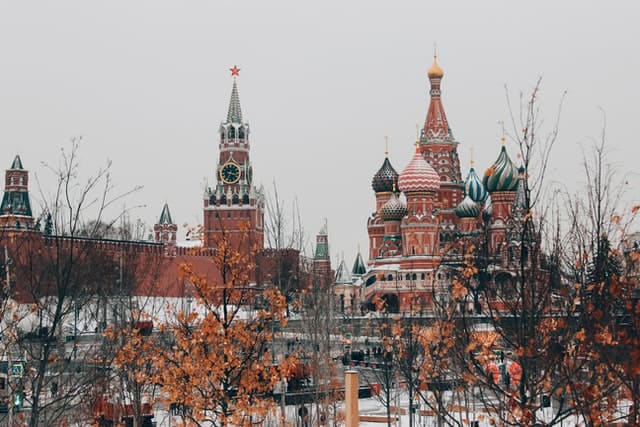There is a lot of buzz around Russia’s aggressive policy against Ukraine. Yet, the relations between the aggressor-country and one of the European countries – Hungary are also causing lots of debates. Let’s dive into that.
The position of the Hungarian government during this hard time is unclear. It contradicts the vision and interests of the EU, NATO, and other allies. So, it is natural for us to want to figure it all out and educate younger generations about it.
Multiple experts comment that Russia’s influence on Hungary’s economics, politics, and social dimensions is growing deeper and stronger every year. Due to this reason, the latter still considers the aggressor-country as a valuable economic partner that should retain a politically neutral status. Therefore, the actions of the Hungarian authorities align with the increasingly aggressive policy of Russia. And, naturally, the EU partners don’t find it appropriate at this time.
So, why is it so? And where did it all start? If you are reading this to write an essay on this topic, you can delegate this task to a paper writing service like writepaper.com and get a top-quality essay with ease. But, if you want to understand the relations between Russia and Hungary on a deep level, we have to look back to 88 years ago and track the long-lasting relationships of the two countries from the 1930s until these days.
Hungary and USSR
The first diplomatic relations between the USSR and Hungary were established on February 4, 1934. As a result, the two countries concluded the Treaty of Commerce and Navigation on March 9, 1940. The core goal of this treaty was to simplify the logistics and trade between Hungary and the Soviet Union. However, soon all agreements were canceled.
On June 23, 1941, the diplomatic partnership was interrupted due to World War II, in which Hungary took the side of Nazi Germany and joined the war against the USSR. Three years later, on December 28, 1994, Hungary has faced the People’s Democratic Revolution that resulted in a declaration of war against Nazi Germany and a truce with the Societ Union and its other allies, which was confirmed by a peace treaty signed on February 10, 1947.
Though the country’s choice of an ally didn’t go in line with the vision and values of the USSR’s government, the partnership was soon restored. Thus, starting from September 25, 1945, diplomatic relations between the two countries were back on track.
From this point on, the relations between the two countries were built based on the principles of socialist internationalism. This ideology was aimed at building a better world through
achieving equality and social justice. According to it, the nations across the globe were meant to closely collaborate to end capitalist exploitation and bring peace to the world.
After restoring the partnership, Hungary and USSR have concluded a number of crucial agreements, including:
Agreement on mutual deliveries and economic cooperation (August 27, 1945);
Treaty of Commerce and Navigation (July 15, 1947);
Treaty of Friendship, Cooperation, and mutual assistance (from February 18, 1948, for 20 years);
The Warsaw Pact (May 14, 1955).
According to all these agreements, the deliveries of various goods between the two countries (as well as other socialist countries-partners) were supposed to be more frequent and seamless, which had to support the economics of all partners. Since then, their relations have been developing progressively… and still are.
Hungary and Russia
The business partnership between countries was very beneficial for both sides. And it was fast-growing too. Due to these reasons, even the dissolution of the Soviet Union couldn’t get in its way.
As some of you may know, the dissolution of the USSR was a long process that took three years, one month, and ten days. Eventually, the process of ethnic, internal political, and economic disintegration within the USSR ended on December 26, 1991. Interestingly enough, the treaty between the Soviet Union’s ex-partner and Russia was signed earlier than the official dissolution of the USSR took place. The diplomatic relationships between the two countries were established on December 6, 1991.
For over 20 years, the partnership between the two countries was getting stronger. The top priority points of their relations were focused on the energy and fuel sector, as well as the development of the nuclear power industry.
For decades, Russia’s energy giants were supporting Hungary. They were shipping natural gas and fuel.
Apart from this, the aggressor country has actively participated in developing and supporting the Hungarian nuclear power plant called Paks ever since it was launched in 1982. Throughout the long-lasting partnership, Russia has helped Hungary to accomplish a number of big goals, including:
- Ensuring a seamless and effective operation of the first unit of the Paks NPP;
- Restoring the second unit of the NPP that was damaged during the accident in 2003;
- Extending the service life and capacity of the Paks units;
- Constructing the fifths and sixths units of the NPP, using reactors powered by Russia’s own VVER-1200 technology;
- Receiving a loan needed for completing the Paks NPP;
- Receiving an official license for the NPP site from the Hungarian Atomic Energy Agency and also a final environmental license.
Such a long-lasting and fruitful cooperation in the two extremely important sectors has ensured a huge influence of Russia on Hungary. According to experts, a large share of the country’s economy, energy, and politics has long been tightly tied to this partnership.
Apart from the energy and import/export sector, Hungary and Russia have also accumulated extensive experience in terms of investment cooperation. Russian companies have invested over 1.5 billion dollars in Hungarian businesses and the economy. The Hungarian companies, in turn, have invested a total of two billion dollars.
Countries’ Relationships Today
In September of 2021, Russia and Hungary signed a new contract that is supposed to be considered valid for the following 15 years. According to the deal, the aggressor country’s energy giant Gazprom is obliged to provide Hungary with 4.5 billion cubic meters of natural gas every year.
There is no need to say that this new contract has caused immense discontent. Due to the ongoing crisis related to Crimea and Donbas being occupied by Russia’s military forces, Ukraine and many other countries worldwide sharply criticized the continuing partnership. Nevertheless, these relationships stay strong to this day.
Although recently the Hungarian prime minister Viktor Orbán has publicly criticized the war and backed the global sanctions against Russia, his party is often expressing different opinions in Hungarian media. According to the local media, the position of the country’s authorities concerning the ongoing war is opposite to what the rest of its allies believe in.
Local media often get caught streaming Kremlin-friendly messages. Namely, most of the mainstream media, same as the government, support the position that the West is largely responsible for the Ukrainian situation. And according to surveys, a big share of the local people believe these titles and see Russia as one of their homeland’s main allies. Nevertheless, it’s happening behind the doors of local news, and none of these ideas is being publicly presented as the official statement.
The Bottom Line
So, we got some things clarified in this long-lasting history of partnership between Hungary and the Russian Federation. We know that the influence Russia has is still huge. What’s more, it is getting even worse every year.
So, what does this mean? Are we allowed to say that Hungary is actually interested in maintaining a friendly relationship with the aggressor even despite its crimes? The answer is, most certainly, yes. At this point, losing these relationships would probably mean massive energy and, as a result, economic crises for Hungary and its people.
The risk of the catastrophe is one of the main triggers of the local authorities’ actions during these days. However, there is one more thing. The gas deal signed between these two countries actually aims to ensure energy security of the entire Central Europe and make the region more independent from the western foes. That is, breaking this partnership could mean a much larger crisis than it might seem at first glance.

